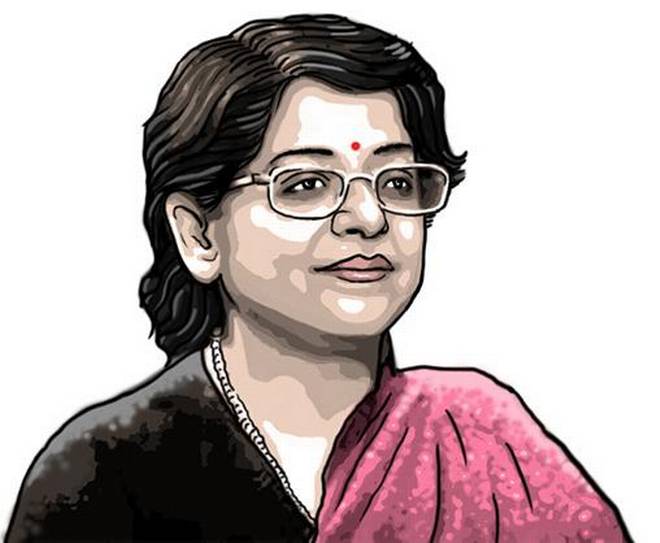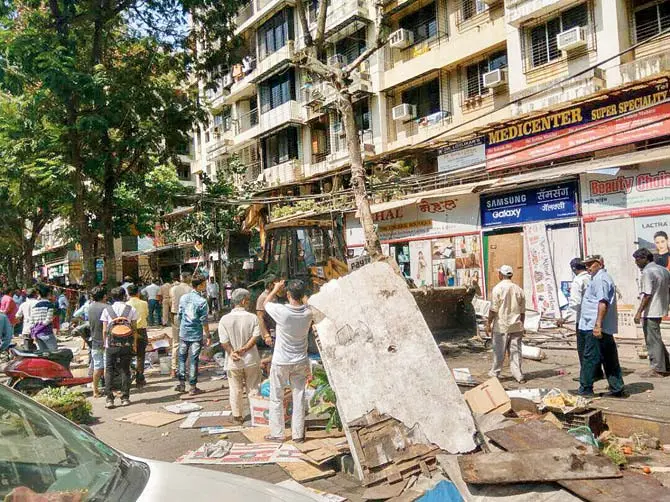Justice Indu Malhotra, who took oath as a judge of the Supreme Court on April 27, has been in the news for being the first woman advocate to be directly elevated to the Supreme Court from the Bar. She is the seventh woman judge of the Supreme Court, after Justice M. Fathima Beevi, Justice Sujata V. Manohar, Justice Ruma Pal, Justice Gyan Sudha Misra, Justice Ranjana Prakash Desai and Justice R. Banumati.
Early life and education
Indu Malhotra was born in Bangalore on March 14, 1956, but moved to Delhi at a young age. She is the daughter of Senior Advocate and academic author Om Prakash Malhotra. She led an extremely disciplined childhood, with her father dissuading her from activities that he considered a waste of time. She attributes her present work ethic to this upbringing.
She completed her B.A. (Hons) in Political Science from Lady Shri Ram College, following which she briefly taught at Miranda House College and Vivekananda College in University of Delhi. She then joined the Faculty of Law, University of Delhi, where she obtained her degree in law.
justice indu malhotra is the second woman to be designated Senior Advocate by the Supreme Court.
Legal career
Indu Malhotra enrolled as a lawyer with the Delhi Bar Council in 1983. She apprenticed with P. H. Parekh for three years, where she had the opportunity to brief “almost every top senior counsel in the country”. Shortly afterwards, in 1988, she became qualified as an Advocate-on-Record and began practising exclusively before the Supreme Court.
Although she describes her initial journey as being difficult, she went on to have an extremely distinguished career before the Supreme Court. Among clients, she has represented statutory bodies like the Securities and Exchange Board of India (SEBI), the Delhi Development Authority (DDA), the Council for Scientific and Industrial Research (CSIR), and the Indian Council for Agricultural Research.
Justice Indu Malhotra has also distinguished herself as an expert on arbitration, appearing in several domestic and international arbitrations. She has served as an arbitrator on several bodies of institutional arbitration, including the Indian Council of Arbitration (ICA) and the Delhi International Arbitration Centre (DIAC). She has also revised The Law and Practice of Arbitration in India, originally authored by her father in 2002.
Also Read: Feminist Judgement Project – What If All Judges Were Feminists?
In recognition of her work, Justice Malhotra has been conferred several honours. She was designated the Standing Counsel for the State of Haryana from 1991 to 1996. She also became the second woman to be designated Senior Advocate by the Supreme Court in 2007, 30 years after the honour was first conferred on Leila Seth.
Activism and social interest cases
During her career as a litigator, Justice Malhotra has taken up several cases of public interest. She has been a strong advocate for a Good Samaritan law in India, and has appeared for the protection of bystanders who assist road accident victims. Other notable public interest litigations that she has appeared in include a petition to frame sentencing guidelines in rape cases, and discrimination against women artists in the film industry.
Justice Malhotra was notably a member of the Vishakha Committee on Sexual Harassment in the Workplace. She was also a member of the ten-member committee constituted by the Supreme Court to deal with complaints of sexual harassment within the Court.
Justice Indu Malhotra has also distinguished herself as an expert on arbitration.
Should feminists be optimistic about the appointment?
Given the traditional gender imbalance in the higher judiciary, Justice Malhotra’s appointment is a welcome step. It is particularly important as Justice R. Banumathi has been the sole woman judge in the Supreme Court since Justice Desai’s retirement in 2014.
However, merely having another woman judge in the Supreme Court would not necessarily mean that her decisions always reflect the best interests of women and marginalized communities. Junior judges, in particular, wield much less influence on benches than senior judges, to whom they traditionally defer.
Nevertheless, given Justice Malhotra’s previous work on sexual harassment and gender-based discrimination, we can be cautiously optimistic that she would be able to translate some of her ideology into her work, and help make the Supreme Court more representative.
References:
Also Read: The Lady of Law and Love: A Tribute to Justice Leila Seth
Featured Image Credit: The Hindu
About the author(s)
Vani Sharma is a law student presently based in Bangalore. She has been actively involved in socio-legal issues and research from her very first year of college. When she is not daydreaming about overthrowing the patriarchy, you can find her in Blossoms or roaming around with the latest book she's reading.




